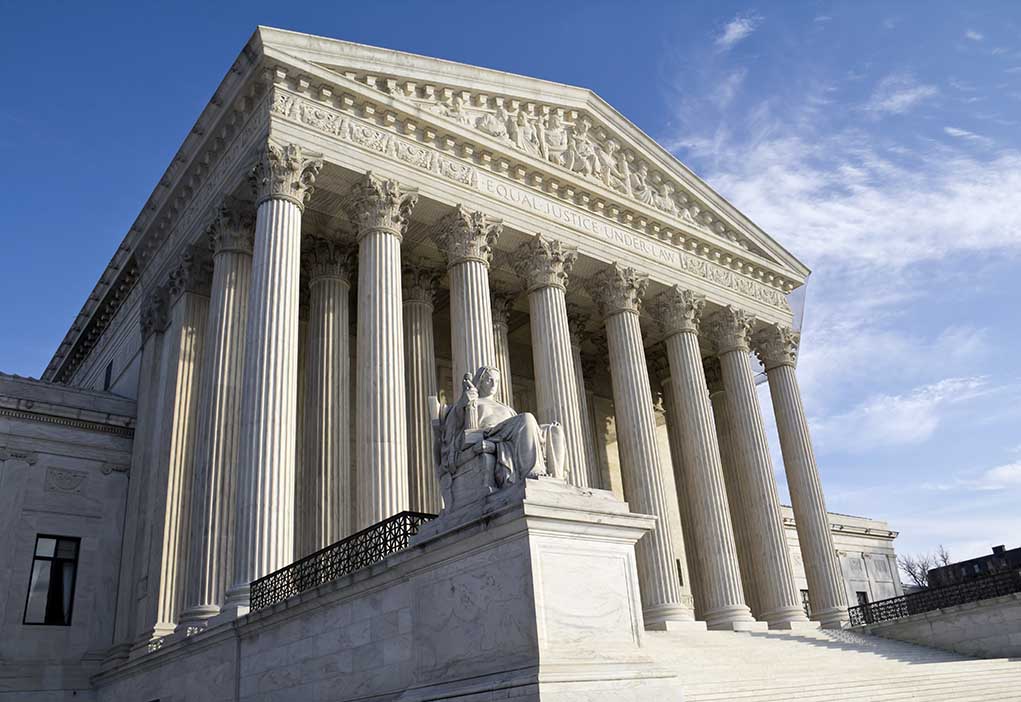
President Trump’s administration has taken the deportation battle to the Supreme Court, asking justices to override a judge’s order blocking swift removals of undocumented migrants to third countries without due process.
Key Takeaways
- The Trump administration is asking the Supreme Court to lift a judicial injunction requiring notice and opportunity to be heard before deporting migrants to third countries.
- Judge Brian Murphy found that federal immigration officials likely violated due process by removing migrants without notification or opportunity to contest their removal.
- Several migrants were reportedly placed on flights to South Sudan despite court orders prohibiting such actions, leading to diplomatic complications with the migrants now held in Djibouti.
- President Trump has criticized judicial intervention in his immigration policies, calling for immediate Supreme Court action to prevent the country from being “under siege.”
- The case centers on whether immigrants facing deportation to countries not of their origin deserve the opportunity to raise concerns about potential torture or persecution.
Trump Administration Challenges Judicial Constraints on Deportation Authority
The Trump administration has escalated its fight against legal obstacles to its immigration enforcement agenda by requesting the Supreme Court lift a lower court order limiting deportations to third countries. Solicitor General D. John Sauer petitioned the high court for emergency relief after Judge Brian Murphy issued an injunction requiring the government to provide migrants with a “meaningful opportunity” to raise concerns about potential persecution or torture before being sent to countries not listed in their original removal orders. The administration argues these judicial constraints severely hamper its ability to enforce immigration laws and conduct foreign policy.
“Those judicially created procedures are currently wreaking havoc on the third-country removal process. In addition to usurping the Executive’s authority over immigration policy, the injunction disrupts sensitive diplomatic, foreign-policy, and national-security efforts,” wrote Solicitor General D. John Sauer in the administration’s appeal to the Supreme Court.
NEW: Trump administration takes another emergency appeal to #SCOTUS, asking it to block Boston fed judge's orders requiring advance notice before third-country deportations https://t.co/5S5SbiYDDZ
— Josh Gerstein (@joshgerstein) May 28, 2025
South Sudan Deportation Controversy Escalates Legal Battle
The legal conflict intensified after the administration acknowledged placing eight migrants with criminal records on a flight to South Sudan, despite Judge Murphy’s order prohibiting such removals without proper notification. The flight never reached its final destination, with the migrants reportedly detained at a military base in Djibouti. This incident prompted the judge to order “reasonable fear” interviews for the deportees, allowing them legal representation to assess potential risks of returning to South Sudan. The administration now argues it faces an “intolerable choice” between holding these individuals in a foreign military facility—risking diplomatic complications—or returning them to the United States.
“The United States has been put to the intolerable choice of holding these aliens for additional proceedings at a military facility on foreign soil — where each day of their continued confinement risks grave harm to American foreign policy — or bringing these convicted criminals back to America,” stated Solicitor General D. John Sauer.
The case involves immigrants from Vietnam, Myanmar, and other countries who claim they face persecution or death if sent to South Sudan or other third countries. Judge Murphy’s ruling established that immigrants should receive at least 10 days’ notice before removal to a third country, allowing them to present evidence of potential harm. The administration contends these requirements impose unreasonable burdens on immigration enforcement and interfere with diplomatic arrangements made with countries willing to accept deportees.
President Trump Condemns Judicial Interference
President Trump has vocally criticized judges for blocking his administration’s immigration policies, framing the issue as one of national security and sovereignty. His administration has approached multiple countries, including Libya, Rwanda, Costa Rica, and El Salvador, to accept migrants who cannot be returned to their countries of origin. Reports indicate over 200 Venezuelans have already been sent to El Salvador’s Terrorism Confinement Center, highlighting the administration’s determination to remove illegal immigrants despite legal challenges.
“The Judges are absolutely out of control, they’re hurting our Country, and they know nothing about particular situations, or what they are doing – And this must change, IMMEDIATELY! Hopefully, the Supreme Court of the United States will put an END to the quagmire that has been caused by the Radical Left,” said President Donald Trump.
The Justice Department’s emergency appeal comes after both Judge Murphy and the U.S. Court of Appeals for the 1st Circuit refused to lift the injunction. The administration’s stance reflects its broader immigration enforcement strategy, which prioritizes rapid deportations and seeks to overcome what it views as obstructionist judicial rulings. The Supreme Court’s decision on this emergency appeal will significantly impact the administration’s ability to execute its immigration agenda without judicial interference.
The Trump administration is seeking Supreme Court intervention to permit rapid deportation of undocumented immigrants to countries other than their home nations, according to Fox News.
This follows a nationwide injunction by lower-court Judge Brian Murphy, which blocked the…
— Breanna Morello (@BreannaMorello) May 27, 2025
Constitutional Due Process vs. Executive Authority
At the heart of this legal battle is the tension between constitutional due process requirements and the executive branch’s authority over immigration enforcement. Judge Murphy emphasized in his ruling that immigrants deserve basic procedural protections when facing deportation to unfamiliar countries where they may face grave danger. His order specified that these protections include simple notification of intended destination and an opportunity to raise concerns about potential persecution, torture, or death—requirements the administration characterizes as judicial overreach.
“Plaintiffs are simply asking to be told they are going to be deported to a new country before they are taken to such a country, and be given an opportunity to explain why such a deportation will likely result in their persecution, torture, and/or death,” wrote Judge Murphy.
The Supreme Court’s decision will establish important precedent regarding the balance between immigration enforcement efficiency and constitutional protections for non-citizens. With foreign policy implications mounting and detention costs in Djibouti rising, the administration has emphasized the urgency of resolving this matter. The outcome will determine whether President Trump’s aggressive deportation strategy can proceed unimpeded or whether judicial checks on executive power will require more deliberate processes for sending migrants to third countries.




